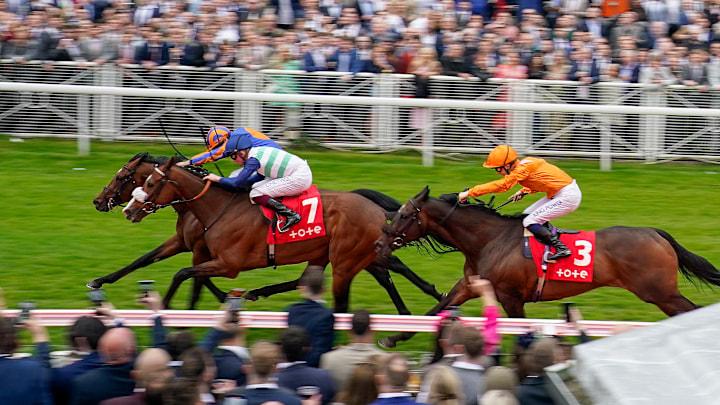Even casual spectators of horse racing have noticed that the contestants often have names that are colorful in the extreme. No horse named Steve or Horsey has ever won the Kentucky Derby. Instead, names like Odor in the Court, Panty Raid, and—more respectably—Secretariat have all galloped down the stretch. So why do racehorses have such odd names?
It comes down to making sure there’s little repetition in the naming convention. Most governing bodies for thoroughbred racing set certain parameters for names. In the United States and Canada, that’s the Jockey Club, which routinely rejects up to a third of naming submissions. You can’t, for example, go past 18 characters, use only numbers, use the names of living persons unless given permission, use profanity, and so on.
Most importantly, the name can’t be one of the hundreds of thousands already registered, a prohibition that can last for years after a horse’s retirement or even forever. Nor can you simply change the spelling slightly: Eazy Goer isn’t going to fly if there’s already an Easy Goer in the registry.
That leaves owners to come up with something creative to fit the guidelines.
The naming structure usually adheres to a few subcategories. A name might refer to a horse’s lineage or pedigree. A horse dubbed Money in the Bank, for example, might sire offspring named Direct Deposit.
Other times, owners will opt for something that’s memorable, like a pun or a pop culture reference; some opt to name their horse after a person in tribute. (Some, like former First Lady Barbara Bush, grant the request; others, like Margaret Thatcher, decline.)
Depending on the regulatory body in question, some names get shot down. The British Horse Racing Authority passed on naming a horse Harry Balzitch or Pee Ness. Somehow, Hoof Hearted got the nod in the United States. (Say it out loud.)
No matter what, horse names seem to provide plenty of fodder for audiences and announcers alike.
[h/t Horse Racing Sense]
